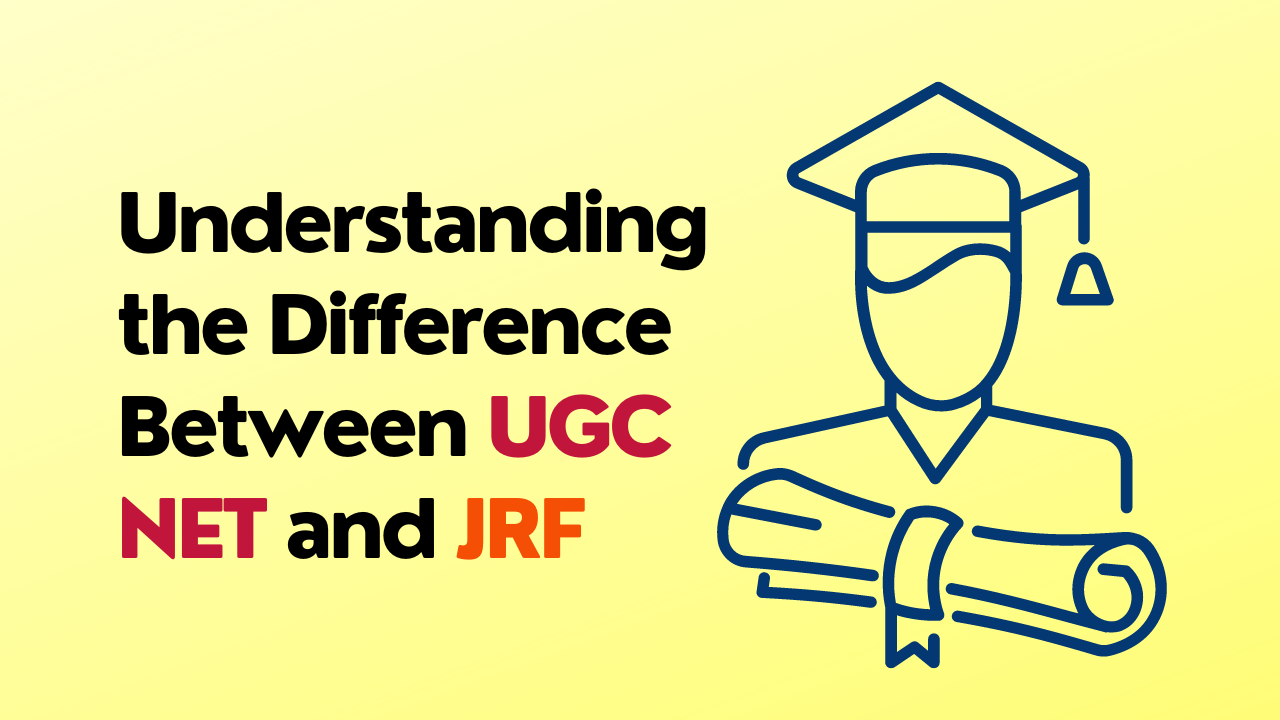
In India, the University Grants Commission (UGC) conducts the National Eligibility Test (NET) to determine the eligibility of candidates for lectureship and the Junior Research Fellowship (JRF). Both UGC NET and JRF hold immense value for individuals seeking a career in academia and research. In this blog post, we will explore the distinctions between UGC NET and JRF, shedding light on their unique features and career prospects.
The UGC NET (University Grants Commission National Eligibility Test) serves as a gateway for individuals aspiring to pursue a career in teaching and lectureship in Indian universities and colleges. It is a rigorous examination that assesses the eligibility of candidates based on their subject-specific knowledge, research aptitude, and general awareness.
Qualifying for the UGC NET exam provides candidates with the UGC NET certificate, which serves as proof of their eligibility for lectureship positions. For this, students can take the help of Scanner UGC NET Books which will help them in their preparation for qualifying for the UGC NET exam. This certification is recognized by universities and colleges across the country, opening doors to numerous teaching opportunities. The eligibility criteria for lectureship positions may vary depending on the regulations and guidelines of individual institutions, but possessing a UGC NET certificate is a fundamental requirement.
Becoming eligible for a lectureship through UGC NET offers a fulfilling career path in academia. Assistant Professors and Lecturers play a crucial role in shaping the education landscape, imparting knowledge to students, and guiding them in their academic pursuits. They are responsible for delivering lectures, conducting practical sessions, mentoring students, and contributing to the overall academic environment.
Lectureship provides a platform for individuals to share their expertise, engage in intellectual discussions, and inspire the next generation. It offers opportunities for continuous learning and professional growth, allowing lecturers to stay updated with the latest developments in their fields. Additionally, lectureship positions often come with a structured career progression, including opportunities for promotions, research grants, and other benefits.
The Junior Research Fellowship (JRF) is a prestigious research opportunity that arises from qualifying the UGC NET examination in India. It offers aspiring researchers the chance to delve into the world of scientific inquiry and contribute to the advancement of knowledge in their respective fields. JRF recipients are awarded a stipend to support their research work, enabling them to focus their efforts on exploring innovative ideas, conducting experiments, and analysing data.
The primary objective of the JRF is to nurture young research talent by providing them with a conducive environment and financial assistance. JRF holders are often associated with research projects in universities, research institutions, and colleges. This exposure allows them to collaborate with eminent researchers, gain hands-on experience, and develop critical research skills.
The financial support provided through the JRF stipend helps alleviate some of the financial burdens that researchers might face, enabling them to fully dedicate their time and effort to their research pursuits. This funding covers various aspects, such as research materials, travel expenses, and other essential requirements. Moreover, JRF often serves as a stepping stone for candidates aspiring to pursue a Ph.D. degree, as many universities and research institutions offer relaxation in the eligibility criteria for JRF holders.
The JRF offers a unique platform for researchers to explore their scientific curiosity, contribute to their chosen fields, and make meaningful discoveries. It nurtures a research-oriented mindset, encouraging JRF holders to push boundaries, challenge existing knowledge, and pave the way for future breakthroughs. The experience gained during the JRF tenure serves as a valuable foundation for a rewarding career in research and development, shaping the next generation of scientific leaders.
|
Distinctions between UGC NET and JRF: |
||
|
UGC NET |
JRF |
|
|
Purpose |
It primarily aims to assess candidates' eligibility for lectureship positions in universities and colleges. |
It focuses on identifying candidates with research potential and provides financial assistance to pursue research work. |
|
Selection Criteria |
Candidates need to qualify for the UGC NET exam by securing the minimum qualifying marks in their respective subjects. |
Candidates need to qualify for the UGC NET exam and secure a higher rank to be eligible for the Junior Research Fellowship. |
|
Financial Support |
Qualifying the UGC NET exam for lectureship positions provides candidates with career opportunities and associated salaries offered by universities and colleges. |
JRF offers a stipend to financially support candidates during their research work, encouraging their involvement in research projects. |
In conclusion, comprehending the distinction between CSIR NET Lectureship and Junior Research Fellowship (JRF) is essential for aspiring individuals. CSIR NET Lectureship offers a platform to inspire and educate, while JRF provides a pathway for in-depth research and advancement. Choosing between the two depends on personal interests and career goals. Qualifying for the CSIR NET exam signifies expertise and opens doors to diverse opportunities. By making an informed decision, individuals can embark on a fulfilling journey aligned with their passion and contribute significantly to the fields of academia and research.
© 2024 Scanner Adda All rights reserved | Design by Shuchita Technologies